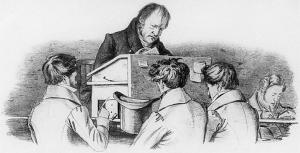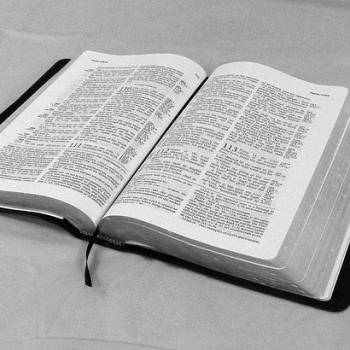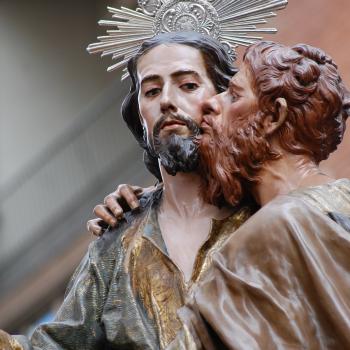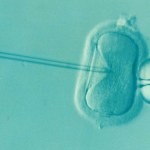
Warning, readers: today’s column walks through some weedy speculative philosophy. To quote Lemony Snicket, you should probably stop reading now. There. You’ve been warned.
The Limits of Experience
I’ve said before that I’m interested in thinking of heaven as something other than an after life. By that I don’t mean to say that there is nothing but this life as we experience it. I also don’t want to say that there is no resurrection at the end. I mean, rather, that the “very good” limits (Gen. 1:31) that God placed on this life ought to be good enough. Surely we don’t need another life in order to see what God meant by calling this one good.
I’ve had some help in these contemplations from a surprising source. G. W. F. Hegel, the great (and verbose) 19th century philosopher. When the world overwhelms me, I hide somewhere and read difficult things. I figure there are worse things I could binge on.
Hegel’s life project—isn’t it always the way?—was to challenge the cultural assumptions of the previous generation. By his time, these assumptions were already being referred under the umbrella term Aufkärung, Enlightenment. The Enlightenment, in this respect, refers to an age that insisted we limit what we call “true” to what we can experience as true. The dominant figure of the movement is Immanuel Kant. Kant’s own project was to place guardrails on human language, such that “understanding ought not be allowed to soar above experience.” That’s the way Hegel summarizes the Enlightenment perspective.
Now, when it comes to a subject like everlasting life, which by definition outstrips our experience, Kant and company had a real problem. A good Lutheran (like Hegel, in fact), Kant was not ready to throw heaven out entirely, as if it were just a pre-Englightened fable. But the best he could do was to say that it was justifiable to believe in it. It is justifiable to hope there is an eternal reward that I cannot yet experience, because of the way that experience of hoping shapes our moral attitude now. In particular, hope for a reward beyond this life keeps us on a moral path now. That’s a fairly thin eschatology, I think.
Hegel on the Trouble with Limits
Hegel agrees. He also points out a philosophical flaw in this fabric. Life without limit can’t simply be the name for what is beyond this life, since that would limit everlasting life itself.
Confused yet? Here’s what he means.
First of all, “infinity” and “infinite being” are confusing terms. Are we talking about God as the infinite being? Or are we talking about the everlasting life that heaven promises? The answer is neither, but also both. As a philosopher, Hegel is not beginning with a preconceived notion of either what the word God means or what faith promises. Instead, he is asking us to contemplate existence within the limits of experience, and then also existence without any limits at all. Still, this will give him the vocabulary he needs to talk about a being who is by nature infinite (God), and the possible incorporation of finite beings like us into this infinity (heaven).
In terms of the Enlightenment’s problem, it all hinges on the word “limit,” a key term for Kant. A common way of thinking about the difference between the limited and the unlimited makes them opposites. They sound like opposites. But Hegel points out that opposing them to one another, like sorting out coins, actually makes for a contradiction. I can’t actually—coherently— say that life without limits, or infinity, is limited by being fundamentally different from what I experience now. That would be like saying, “on the other side of the fence is everywhere. But not on this side.” Doesn’t the fence itself mean that “over there” is not everywhere?
We think of finite life and infinite life as if they were two separate locations. That makes infinity into a kind of expansive finitude, or what he calls “bad infinity.” It’s as if we’ve said “heaven is the life that goes on spatially and temporally forever, except that it is not here and not now.” Well, then, isn’t that a limit? Doesn’t that make heaven finite?
Instead, Hegel suggests we think of the infinite as the internal vocation of every finite thing. The urge within me to experience my own finite life as a sharing in a life with no end. Said differently: infinity “lowers” itself and becomes the calling to life without end particular to each finite thing. And then, in the same moment, it elevates this vocationally-woke finite being into the true boundlessness of all things.
Heaven as Infinite Calling to Finite Beings
Now, Hegel is wordy, complex, and heterodox at best. I don’t mean to say he’s solid as scripture when it comes to contemplating heaven. It’s not even exactly heaven he’s talking about it here, but the interrelatedness of infinite and finite being. Also, I’d want to challenge him on the way he understands the word “beyond.” He doesn’t want to say that infinite being is “beyond” finitude, because he thinks that can only imply the limiting kind of beyond. Like my neighbor’s yard beyond the fence. I think there are things he could have learned, but didn’t, from Thomas Aquinas.
Still, Hegel helps. He helps me contemplate heaven as a full and unbounded flourishing of my finitude. Not somewhere else, “on the other side.” Infinity is here and now, the infinite God’s gracious condescension to be my (your) unique vocation to the joy of the good life God created for me (you). And: the elevation of that life until it’s not just mine and not just now, but the ascended perspective from which we can all glorify God in all things and all things in God together.















